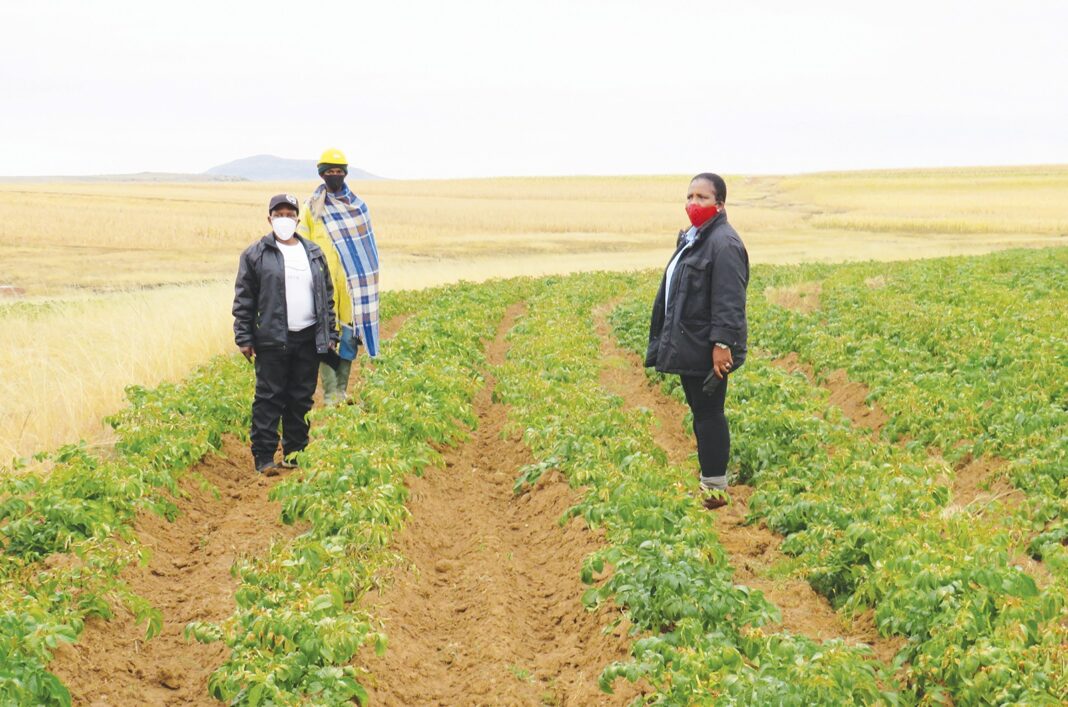By Neo Kolane
The ministry of agriculture and food security has imposed potato importation restrictions after the country realised an increased crop production this year.
According to the principal secretary of the ministry of agriculture and food security, Mole Khumalo, the restriction, which is effective from June 1 this year, was proposed by domestic potato growers who have harvested the commodity in abundance.
He said the farmers who had sown potatoes had experienced a satisfactory harvest, triggering them to plead for reduced importation of the products into the country from the neighbouring South Africa.
But Khumalo said the ministry learned that some vendors who sell potatoes complained that the potatoes harvested in Lesotho were of some sub-standard in terms of packaging and sizes. That, he added, led to the reduction on the importation of the commodity into the country.
The Potato Lesotho Association (PLA) has also weighed in on the restriction saying although it was beneficial to the farmers, it required caution and proper planning for implementation.
The chairperson of the supervisory committee of the PLA, Chaka Ntsane, suggested: “The reason for the restriction is good because there is good production of potatoes at different nine pilot areas constituting about 750 acres manned with 750 farmers growing the potato seeds.
The nine pilot areas in the country are Mokhotlong, Mantṧonyane, Marakabei, Nyakosoba, Ha Tlali, Semonkong, Matelile, Mpharane and Koalapere.
Ntsane said agriculture in Lesotho still qualifies as an infant industry, but particularly potato production is also on the growth path.
Ntsane explained that it is still an infant agricultural despite high potential for increased production due to the altitude and longitude of the country’s landscape.
“We still have not reached maximum production. Therefore, we still are not yet exporting when we could be exporting; whether clean seeds or high quality table potatoes. In that sense the development of the potato industry is still lagging far behind.
“It is a good thing to protect this industry and the farmers it means farmers need access to finance and markets.
“These are ultimately interlinked because there could only be secured access to finance if finances are assured that there is access to markets, markets that will make the farmers to get a good return investment; and also be able to repay whatever finance they have leveraged,” Ntsane said.
He told theReporter that the closure of the borders and the restriction of the imports was done without full consultation with his association.
He said the announcement was made by the minister of agriculture and food security who should have consulted his planning unit but it had emerged he did not.
“He should have consulted with his technical and professional unit and marketing experts but he had not.
“Producers should have been consulted to find out if they were able to sufficiently supply to the market.
“The consultations were not exhaustive, as a result, when the announcement was made it threw everyone into confusion, much as some were excited and happy, it was a challenge, everyone had to run and try to harvest as quickly as possible.
“Any restriction of any commodity relating to agriculture has to be planned so that we can play our part,” Ntsane said.
This week, the publication learned that some businesses are still importing potatoes from Marquard in South Africa.
This was confirmed by one business owner who wanted to remain anonymous saying that her business license still allows her to import such vegetables.









